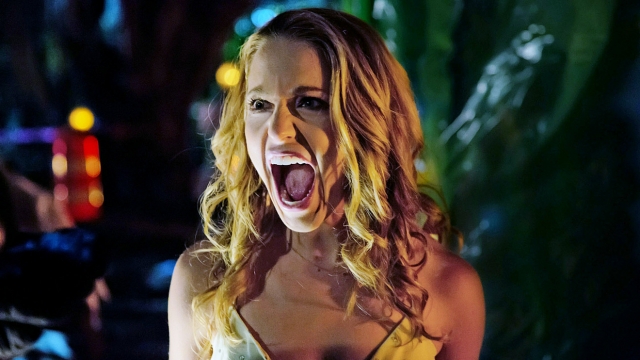
The scary thing Hollywood does when it runs out of reboots
http://ift.tt/2gn32AM
Hollywood has found a winning new formula. “Happy Death Day,” a mash-up of two 1990s movies, has beaten “Blade Runner 2049,” a straight sequel of a 1980s cult hit, at the box office.
”Happy Death Day” takes the best bits from both movies: A young student (Jessica Rothe) wakes up in a college dorm room, not remembering how she got there. It’s her birthday. She’s pretty much mean to everyone who crosses her path and, before she attends her surprise birthday party, she’s murdered — only to wake up in the dorm room to relive the day again 14 times, to be exact. The twist: She becomes a nicer person and also a kick-ass crime fighter who figures out who keeps killing her.
It would perhaps be folly to remake “Groundhog Day,” the 1993 cult classic starring Bill Murray about a grumpy weather man who had to relive the same day over and over, until he learned to become a better man. And “Scream,” the 1996 comedy-horror flick starring Neve Campbell, spawned three sequels, each getting a cooler critical reception than the last. So what do you do if you’re a Hollywood producer running out of ideas?
Genre-bend more recent ideas into box office gold. “Happy Death Day,” released on Friday the 13th by Blumhouse, the production company that made this year’s critically-acclaimed “Get Out” and “Split,” was No. 1 at the box office last weekend. It is boldly marketed as “Groundhog Day meets Scream.” Indeed, one of the final scenes actually gives some meta-props to Murray’s movie, which was recently turned into a Broadway musical. Murray, prophetically, went two days in a row.
Hollywood is running out of reboots from the 1980s, and has turned its gimlet eye to the 1990s. Audiences are tiring of straight remakes of old hits. The reboot of “Flatliners” (1990), the science-fiction thriller starring Julia Roberts, flatlined at the box office. Of the top 15 highest-grossing films of that decade,” MarketWatch Trey Williams wrote, “just three to date have not been given a sequel or prequel or turned into a franchise: “E.T. the Extra-Terrestrial,” “Tootsie” and “Rain Man.”
Don’t miss: Shyamalan’s ‘Split’ and 10 of the biggest plot twists in movie history
Another reason for studios to avoid 1980s reboots in favor of genre-jumping 1990s fare: Movies from the 1990s with stars that are still hot today are more likely to resonate with younger viewers. Universal, which distributed “Happy Death Day,” said 64% of the ticket buyers were under the age of 25. In contrast, 63% of the audience for Warner Bros.’s Blade Runner 2049,” which cost $150 million to make and market, were over the age of 35, but only 14% were under the age of 25.
“Happy Death Day” appealed to a much-underserved female audience in an industry that has been eager to churn out action flicks for teenage boys. More than half (54%) of the audience were female. “Wonder Woman” showed there’s a big market for fearless and fearsome female heroines. Vulture critic David Edelstein wrote: “Its “Groundhog Day” conceit is kind of irresistible, and the genre blend seems right for this age of women seeking stability and empowerment.”
This genre mashup may also be the perfect solution for classic movies that no one wants to see being remade or, worse, remade badly. It’s not the first time that “Groundhog Day” has inspired another movie and genre. The reliving-the-same day trope has been turned into an action thriller (“Edge of Tomorrow”) and straight drama (“Before I Fall”).”It is a more creative way of playing the nostalgia card then simply remaking a movie,” said Ben Moore, a movie critic.
But Moore cautions that the audience gets smart to such obvious marketing tactics. “Like all devices it can and probably will be overused,” he said. It appears to have worked with “Happy Death Day,” directed by Christopher Landon and starring 30-year-old Rothe, not (yet) a household name, earned $26.5 million in North America on a budget of just $5 million, versus “Blade Runner 2049,” which pulled in $15.1 million in its second weekend, bringing its U.S. ticket sales to $60.6 million.
business
via MarketWatch.com – Top Stories http://ift.tt/dPxWU8
